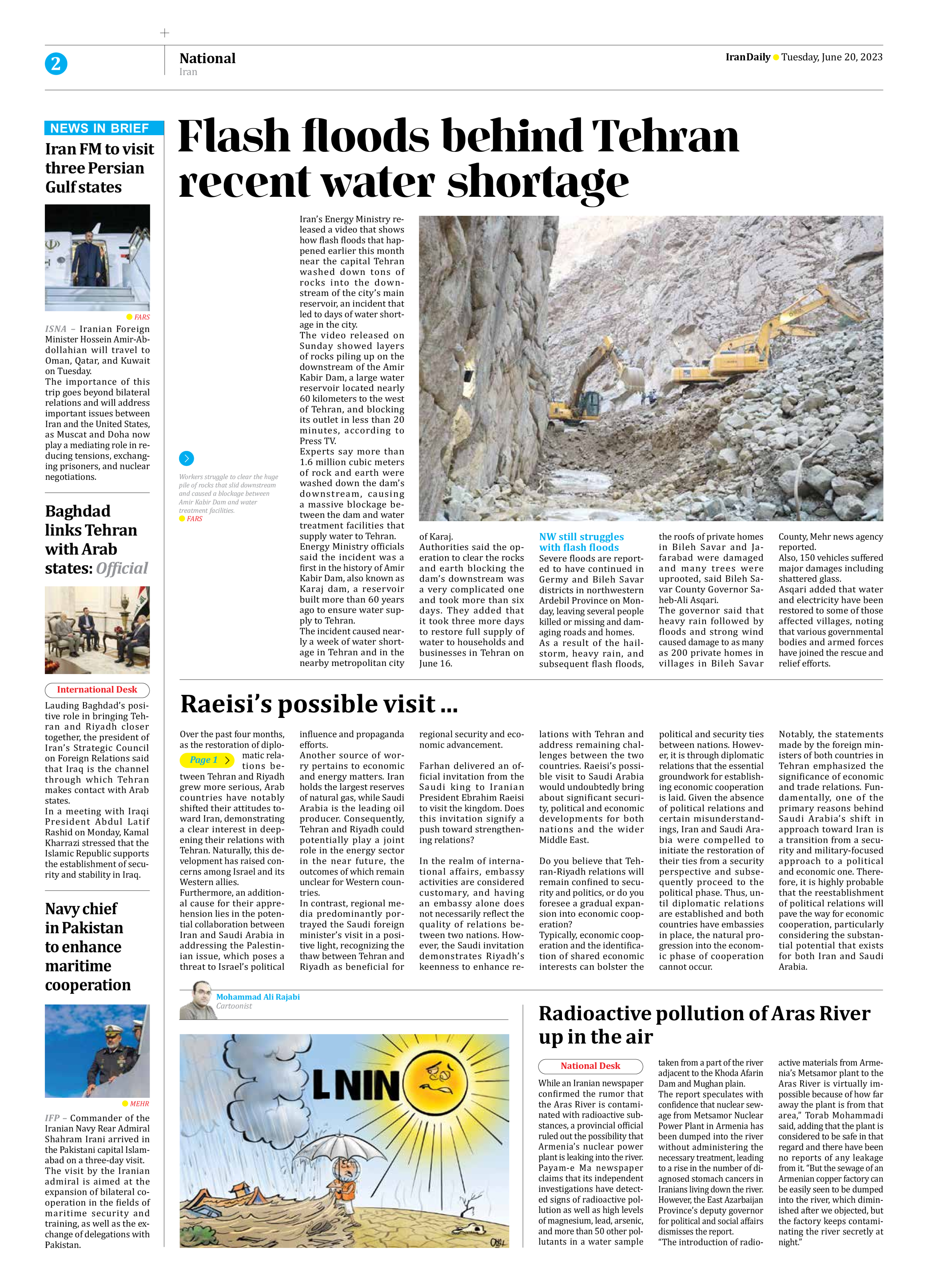
Flash floods behind Tehran recent water shortage
Iran’s Energy Ministry released a video that shows how flash floods that happened earlier this month near the capital Tehran washed down tons of rocks into the downstream of the city’s main reservoir, an incident that led to days of water shortage in the city.
The video released on Sunday showed layers of rocks piling up on the downstream of the Amir Kabir Dam, a large water reservoir located nearly 60 kilometers to the west of Tehran, and blocking its outlet in less than 20 minutes, according to Press TV.
Experts say more than 1.6 million cubic meters of rock and earth were washed down the dam’s downstream, causing a massive blockage between the dam and water treatment facilities that supply water to Tehran.
Energy Ministry officials said the incident was a first in the history of Amir Kabir Dam, also known as Karaj dam, a reservoir built more than 60 years ago to ensure water supply to Tehran.
The incident caused nearly a week of water shortage in Tehran and in the nearby metropolitan city of Karaj.
Authorities said the operation to clear the rocks and earth blocking the dam’s downstream was a very complicated one and took more than six days. They added that it took three more days to restore full supply of water to households and businesses in Tehran on June 16.
NW still struggles with flash floods
Severe floods are reported to have continued in Germy and Bileh Savar districts in northwestern Ardebil Province on Monday, leaving several people killed or missing and damaging roads and homes.
As a result of the hailstorm, heavy rain, and subsequent flash floods, the roofs of private homes in Bileh Savar and Jafarabad were damaged and many trees were uprooted, said Bileh Savar County Governor Saheb-Ali Asqari.
The governor said that heavy rain followed by floods and strong wind caused damage to as many as 200 private homes in villages in Bileh Savar County, Mehr news agency reported.
Also, 150 vehicles suffered major damages including shattered glass.
Asqari added that water and electricity have been restored to some of those affected villages, noting that various governmental bodies and armed forces have joined the rescue and relief efforts.







